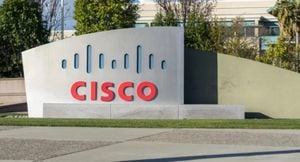Rivian and Volkswagen Group have officially established their joint venture, marking a significant milestone with Volkswagen increasing its investment to $5.8 billion. This collaboration is set to reshape how electric vehicles (EVs) are developed by combining Rivian's cutting-edge software expertise and Volkswagen's extensive manufacturing capability.
First announced back in June, the joint venture, known as Rivian and Volkswagen Group Technologies, aims to streamline and innovate electric vehicle architectures and software solutions for both brands. The headquarters will be located initially in Palo Alto, California, with plans for additional development locations across North America and Europe.
At the helm of this collaboration will be Rivian’s Chief Software Officer Wassym Bensaid and Volkswagen’s Chief Technology Officer Carsten Helbing. The companies have committed to leveraging their respective strengths to develop next-generation electrical systems and sophisticated software intended for various vehicle segments, focusing on user experience improvements through seamless over-the-air updates and paid subscription features.
“This partnership and this deal secures the capital for us to not only launch Rivian's R2 model but also ensures growth at our facilities,” stated RJ Scaringe, Rivian’s CEO. The R2 is set to be more affordable than previous models, targeting the growing need for cost-efficient EV options.
This partnership couldn’t come at a more opportune time for both Rivian and Volkswagen. Rivian has faced substantial financial pressures, drowning under losses of almost $40,000 per vehicle delivered as of recently. The influx of funding from Volkswagen is expected to stabilize Rivian, aiding its efforts to launch the R2 and introduce it to the market by mid-2026. Concurrently, Volkswagen, which has encountered delays within its own software division, Cariad, stands to benefit immensely from Rivian's streamlined technologies.
Volkswagen's CEO Oliver Blume emphasized, “The electric electronic architecture will fit and will be scalable for the great volume of cars.” This hints at Volkswagen's ambition to bring elements of Rivian’s technology to mainstream models, enhancing not just luxury brands like Audi and Porsche, but also the more affordable Volkswagen lineup.
The R2, Rivian's new budget-oriented SUV, is poised to be the first model to utilize the joint venture’s advancements, with expectations of production commencing by 2026. The initiative appears to target the growing competition within cheaper EVs, which has gained traction as more consumers seek practical electric alternatives.
While both firms will focus on software and electrical systems with this collaboration, it’s noteworthy to mention this initiative doesn’t extend to physical components like batteries and motors. Volkswagen is simultaneously focusing on strengthening its own Cariad division, showcasing its plans to remain integral to the technical aspects of vehicle manufacturing.
Volkswagen’s aim to invest $5.8 billion by 2027 comprises not just cash funding—initially involving $1 billion as a convertible note—but also substantial licensing and equity arrangements. Of the planned capital, about $1.3 billion is set to acquire intellectual property licenses, ensuring both companies maintain significant stakes and shared benefits from innovations to come.
Despite its struggle with profitability, Rivian's stock price recently surged nearly nine percent following the joint venture announcement. This reflects growing investor confidence as Rivian roadmaps its future alongside Volkswagen.
Interestingly, this partnership could also help support Volkswagen’s Cariad division, which has come under fire for delayed vehicle launches, leading to operational inefficiencies and layoffs within the company rank. By adopting Rivian's novel software architectures, the initiative aims to avoid these pitfalls as both companies move forward.
With Rivian's recent layoffs and restructured supplier contracts, the collaboration presents not just financial backing but also strategic resources aimed at enhancing Rivian's operational capabilities, such as managing production and streamlining supply chains.
Rivian executives, including Scaringe, have reiterated their commitment to producing high-quality products and driving EV adoption through innovation and strategic partnerships like this one with Volkswagen.
The launch of this joint venture highlights the urgency and potential of the electric vehicle market, especially as both Rivian and Volkswagen look to adapt to rapidly changing consumer demands and shifting industry landscapes.
Looking toward the future, the companies expect to see new vehicles integrating their shared architectural innovations entering production as early as 2027. The partnership sets the tone for cooperative advancements within the EV sector, prioritizing both technological integration and consumer accessibility.
This new venture isn't just about enhancing competitiveness; it's about pushing the envelope of what's possible within the electric vehicle marketplace at large.



